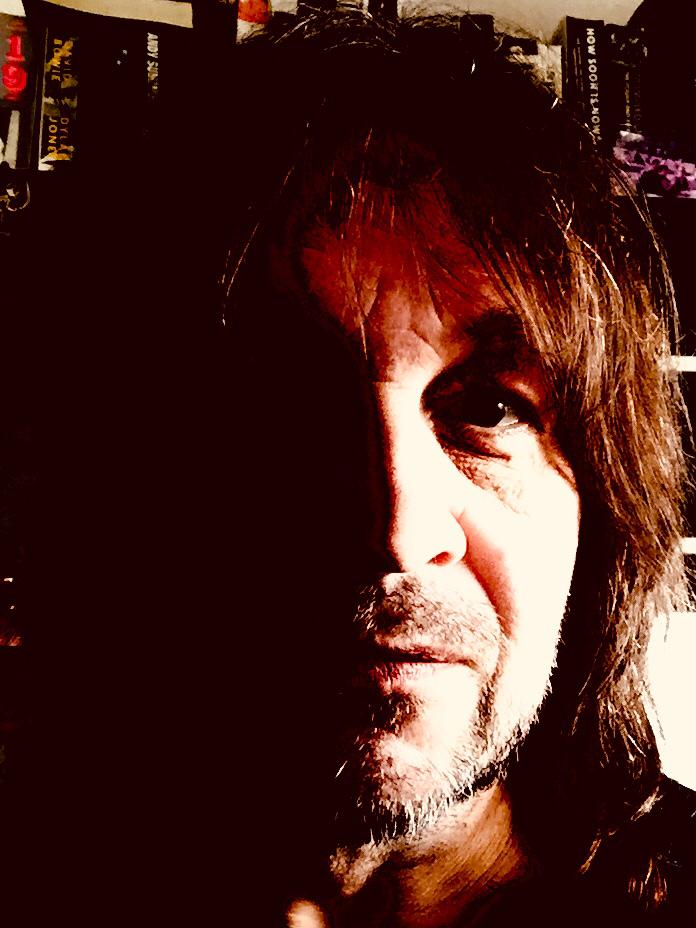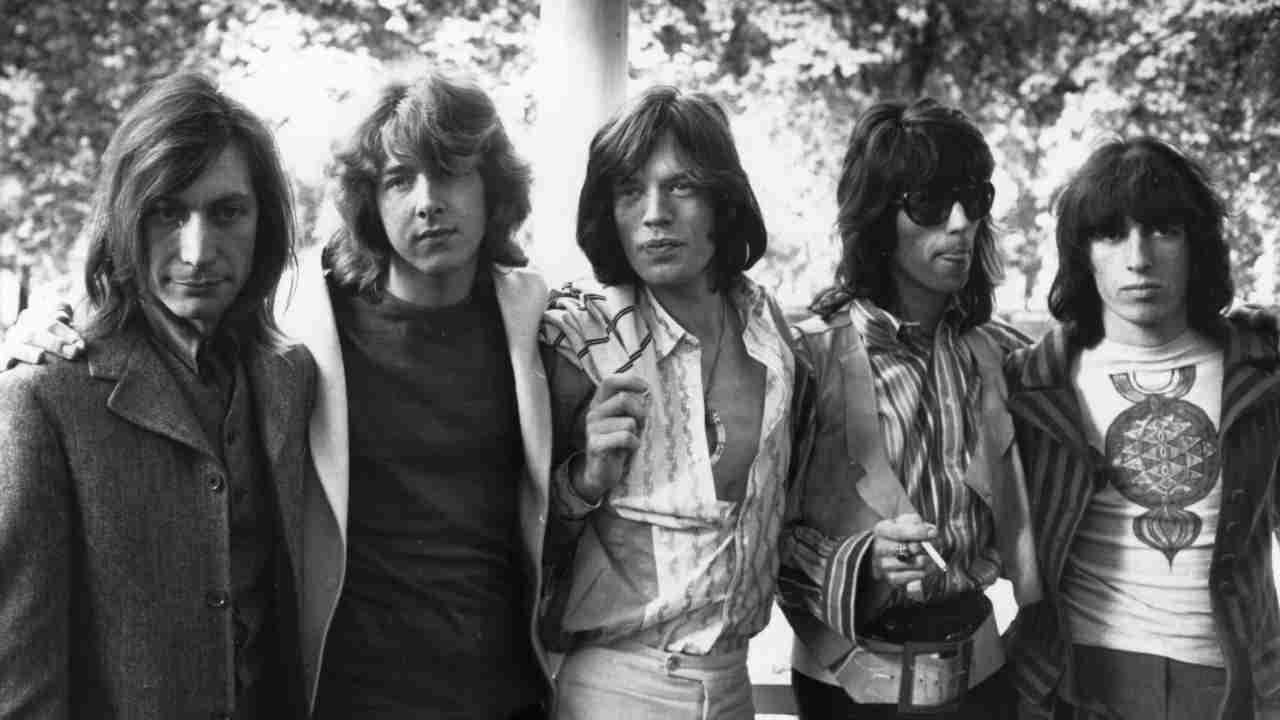“He wasn’t taken seriously on the London scene because he was into mime and he wasn’t a total hippy”: the turbulent story of David Bowie’s early years
Even superstars have to begin somewhere – and for the young David Bowie it was with a string of flop 1960s singles and a bizarre appearance on the BBC
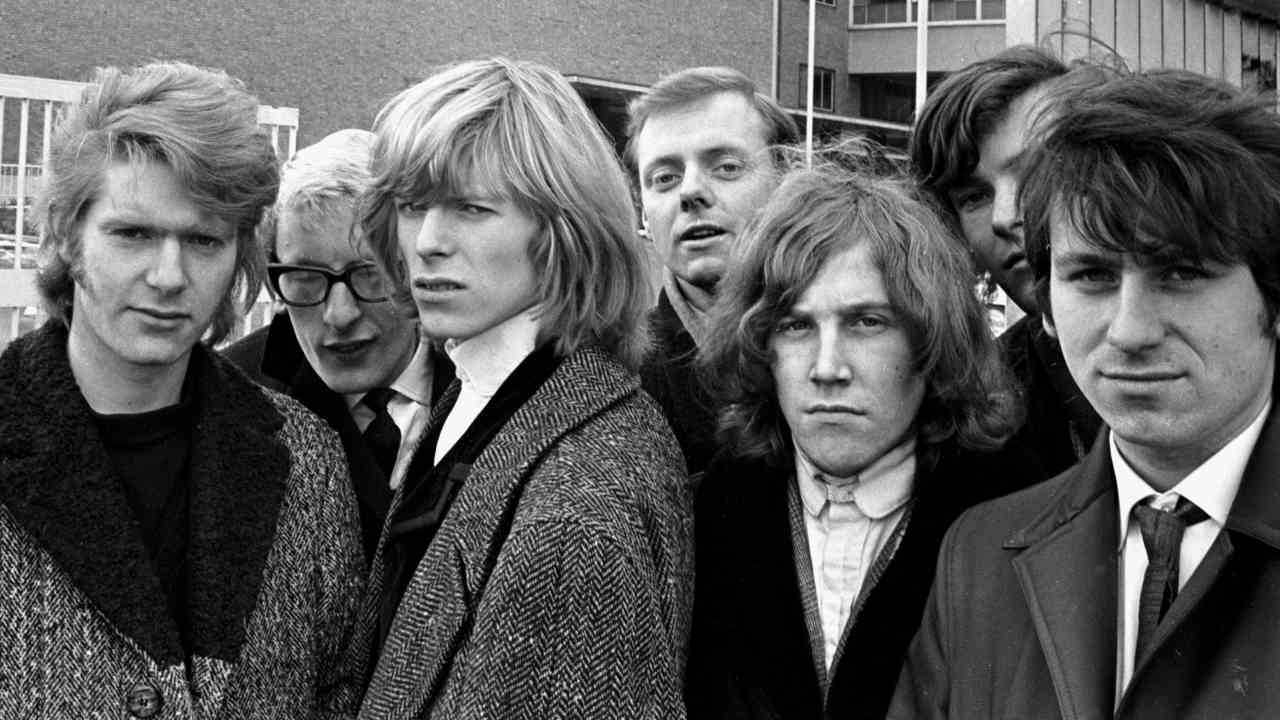
Select the newsletters you’d like to receive. Then, add your email to sign up.
You are now subscribed
Your newsletter sign-up was successful
Want to add more newsletters?
The London that David Bowie was born into on January 8, 1947 still bore the scars of World War II. This was a landscape pockmarked by bombsites, the detritus of destruction and inhabited by a shell-shocked population living with rationing, austerity and making do.
Then again, nothing was conventional about him right from the start. Born David Robert Jones in Brixton, south London to Haywood ‘John’ Jones – a PR executive for the children’s charity Barnardo’s – and cinema usherette Margaret ‘Peggy’ Burns, the future Starman was eight months old before his parents married. Both had children from previous relationships and his father had had showbiz ambitions of his own when he tried to launch his previous wife, Hilda, as a singer. His efforts came to naught.
By all accounts, Bowie’s early years were far from straightforward. In 1996, he told the BBC’s Alan Yentob: “It wasn’t a particularly happy childhood. My parents were cold emotionally and there weren’t many hugs. I always craved affection because of that.”
Despite a 10-year age difference, Bowie was close to his older half-brother, Terry Burns, who would prove to be a huge influence on his life as well as trying to protect him from the schizophrenia on his mother’s side of the family.
“I’m not so sure how much of it is madness,” Bowie would ruminate to Yentob. “There’s an awful lot of emotional and spiritual mutilation that goes on in my family.”
The half-brothers would split for a couple of years when, in 1956, Terry was called up as part of his National Service. A year later, the Jones family left Brixton for the more staid environs of Bromley, an outer borough of Greater London where he met his lifelong friends Geoff MacCormack – who would later work with Bowie as his backing singer – and George Underwood who’d later make an inadvertent yet significant impact on Bowie’s life. The trio bonded over a love of Americana and rock’n’roll.
“The country was very grey,” McCormack told Carrie Kania at the Bowie 75 convention in 2022. “The only chink of light came from America via its fashion and its music. David’s father had access to music from America. We’d listen to Elvis and Fats Domino. Little Richard was rebellion, like a thunderbolt. Everyone wanted to be Elvis, but David wanted to be Little Richard.”
Sign up below to get the latest from Classic Rock, plus exclusive special offers, direct to your inbox!
Joining Bromley Technical High School in 1958, further influences hit the young Bowie. After being de-mobbed, his half-brother Terry returned and introduced him to the beat poets and Jack Kerouac’s On The Road. Terry would take David into the demi-monde of Soho where he acquainted him with jazz and R’n’B as well as pointing out the sleazier aspects of the central London neighbourhood. With his father giving him a saxophone, Bowie took a greater interest in art via an experimental school programme spearheaded by Owen Frampton, Peter’s dad. A burgeoning interest in fashion would find the young Bowie playing around with his image.
“I spent all those formative teenage years adopting guises and learning to be somebody,” Bowie told the BBC’s Jeremy Paxman in 1999.
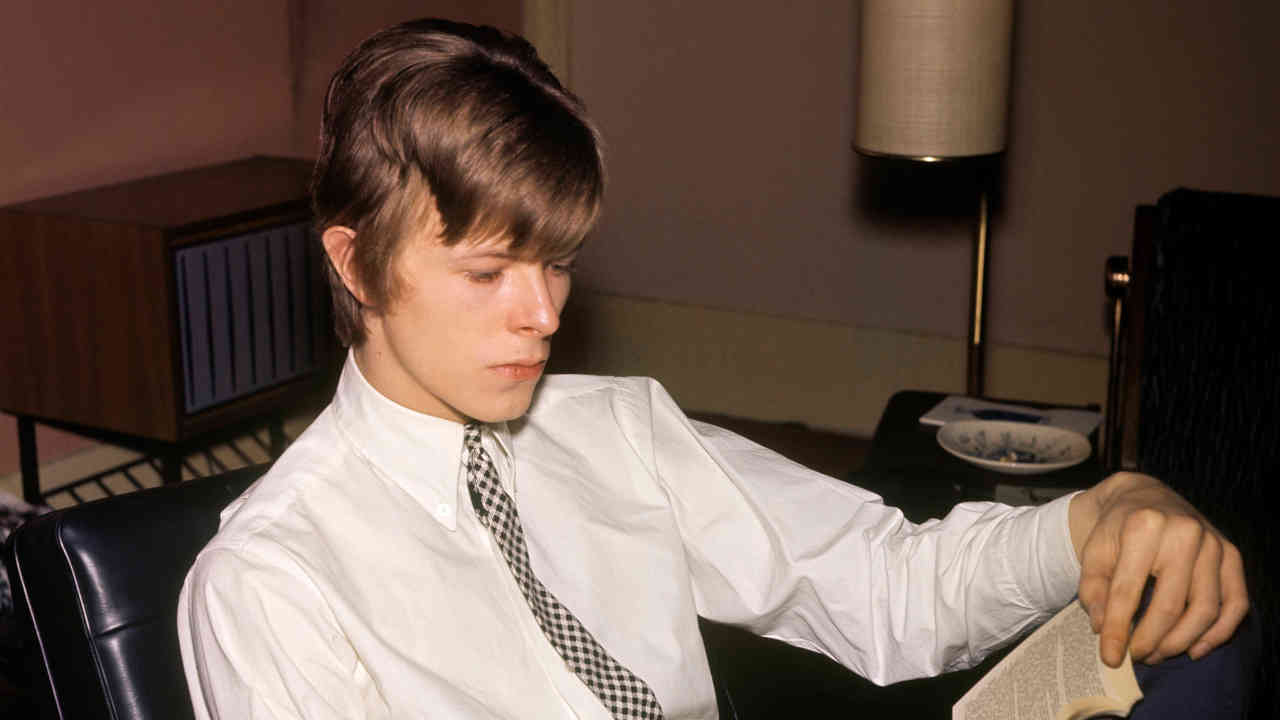
The biggest and arguably most significant change to the teenage Bowie occurred in 1962. Falling out with his pal George Underwood over a girl called Carol whom Bowie had tried to steal, the former took matters into his own hands.
“I was so aggrieved that I just walked up to him, turned him around and went ‘whack!’ without even thinking,” recalled Underwood to ITV’s London Tonight in 2012. Unfortunately, his punch to Bowie’s left eye would have serious consequences. Needing three operations to save his sight, Bowie was left with a permanently dilated pupil that gave the appearance of having differently coloured eyes.
In his poem Annus Mirabilis, Philip Larkin identified 1963 as the real start of the 1960s as they are understood today. This was when “sexual intercourse began… Between the end of the Chatterley ban /And the Beatles’ first LP.” By this point, Bowie had already been playing in showband the Kon-Rads. Though the band split before Bowie left school in 1963, he’d informed his parents of his desire to become a pop star. He would spend the next six years floundering on the edge of success.
Part of the problem with Bowie’s inability to break through in the 60s was exactly what would propel him to the huge success the following decade – himself. So enamored was he of the idea of fame and absorbing influences like a sponge, that he would flit from one fad to the next without giving it the single-minded focus needed to see a project through.
“I’ve always been a very curious and enthusiastic person,” Bowie admitted. “I had a very short attention span and would move from one thing to another quite rapidly.”
Such was the case with his next band, the R’n’B-flavoured Davie Jones And The King Bees, which he formed with George Underwood. Released in 1964, their sole release, Liza Jane, sank without a trace. Compared to contemporaries the Pretty Things’ Rosalyn – released the same month and later covered by Bowie on Pin Ups – the former came across as dilettantes rather than serious blues devotees with an added penchant for amplified hooliganism.
But it got Bowie noticed. Signing with impresario Leslie Conn and swiftly joining the Manish Boys, the pair hatched the kind of publicity stunt that Bowie would excel at during the 70s. Through his father’s PR connections, the London Evening News ran a story about a group of young men who’d suffered abuse because of their long hair. Naturally, these youths were the Manish Boys and this exercise in media manipulation soon gained traction when they appeared on BBC show Tonight. Claiming to be the leader of the Society For The Prevention Of Cruelty To Long-Haired Men, Bowie – his own hair resting on his eyebrows and collar – bemoaned the lot of the hirsute man to presenter Cliff Michelmore.
“We’re all fairly tolerant but for the last two years we’ve had comments like ‘Darling’ and ‘Can I carry your hand bag?’ thrown at us and I think it just has to stop now,” said Bowie as his band mates sniggered behind him. Though a significant publicity coup for Bowie and the Manish Boys, there remained a flaw in their strategy: their debut single wouldn’t be released for another four months, by which point they’d been forgotten. Another release, another flop.
Come 1965 and Bowie had re-styled himself as a mod and was fronting his fourth band – Davy Jones And The Lower Third. Significantly, he changed his name to David Bowie to avoid confusion with future Monkee Davy Jones – fast emerging as a star in his own right. Their single, Can’t Help Thinking About Me, flopped in early 1966, but it did mark a change in Bowie’s songwriting as it reveled in a narcissistic, self-aware glee.
Despite a lack of record sales, Bowie was a face on the London scene of 1966. Backed by yet another band – this time the Buzz – he was a regular performer at the Marquee but he still lacked that indefinable X-factor that could take him to the next level.
It was at one of these shows that Bowie was introduced to his next manager, Ken Pitt. For the next three-and-a-half years, the pair worked hard to free him from the gravitational pull of obscurity. Pitt had worked as the UK publicist for Judy Garland, Frank Sinatra and Jerry Lee Lewis. Advising Bowie to develop a cabaret act, the singer opted for the singer-songwriter route, inspired in part by the acetate of the Velvet Underground’s debut album that had been given to him by his new manager.
Another major influence on Bowie was the homegrown all-round entertainer Anthony Newley. Bowie’s faux vocal Americanisms were replaced by an accent much closer to home.
“He had this fixation with Anthony Newley,” said producer Gus Dudgeon in a 1992 TV interview. “Every time Bowie opened his mouth, Anthony Newley would pop out.”
Signing to Deram Records, Bowie released another pair of flop singles in the shape of Rubber Band and The Laughing Gnome. His eponymous debut album, a combination of Baroque pop and music hall influences, was released in the shadow of the Beatles’ landmark Sgt. Pepper’s Lonely Hearts Club Band.
“It didn’t stand a chance,” producer Mike Vernon told director Francis Whately in 2019, but it did contain many of the themes that would appear in his later work: the gender blurring of She’s Got Medals and flawed messiah in We Are Hungry Men would later re-appear in Queen Bitch and Ziggy Stardust respectively.
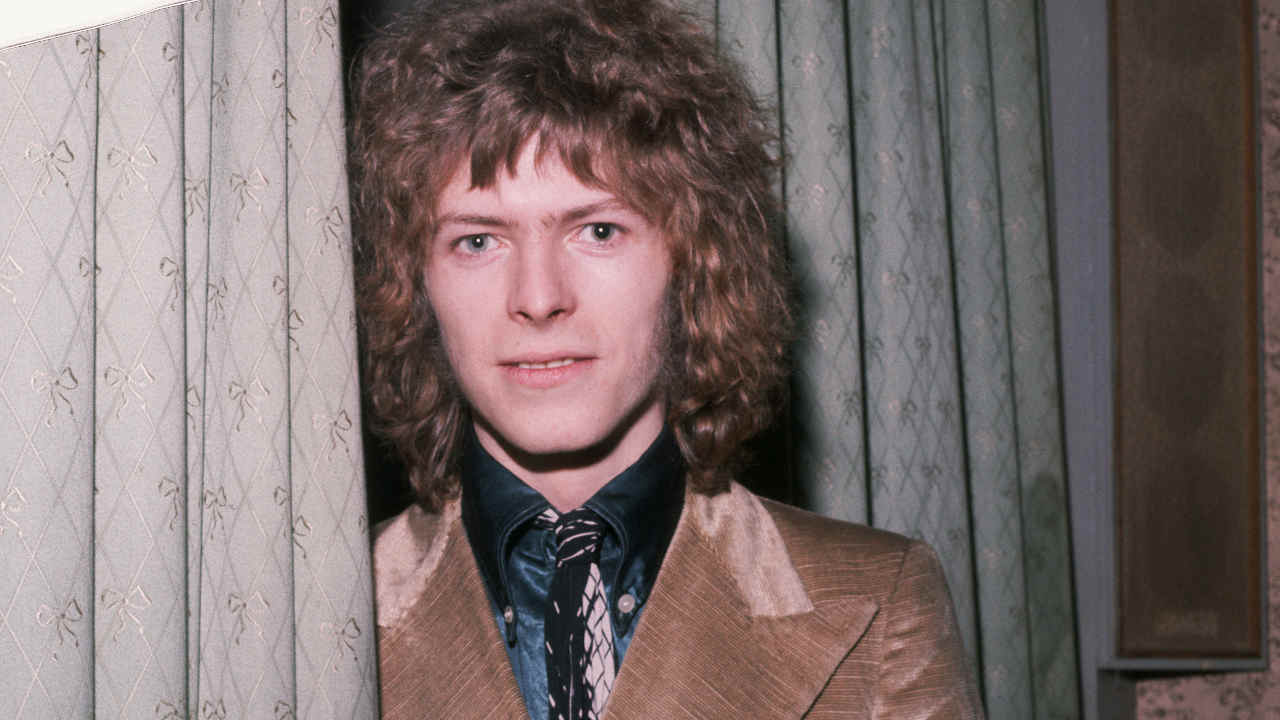
“It was very difficult to get him noticed at the time,” admitted Pitt in a 1985 BBC radio interview. He encouraged Bowie to turn to acting. His first role was that of a painting brought to life in the short film, The Image, but again, Bowie’s efforts were thwarted. Flitting once again, he studied mime under dancer and choreographer Lindsay Kemp before hitting another wall.
Falling in love with dancer Harmione Farthingale who he’d met through Kemp, the pair teamed up with former Buzz guitarist John Hutchinson to form Feathers but their blend of folk, poetry and mime was always going have a quite limited appeal.
“He wasn’t taken that seriously on the London underground scene because he was into mime and he wasn’t a total hippy. There was something about him that didn’t quite fit,” singer-songwriter and Bowie obsessive Robyn Hitchcock told this writer in 2013.
Hitchcock was perfectly correct in his assessment. It’s a view that Bowie himself subscribed to. Speaking to Melody Maker in 1966, he opined: “As far as I’m concerned the whole idea of western life – that’s the life we live now – is wrong.”
His sense of isolation and fear must have increased when, returning home from a concert by Cream with his half-brother, he witnessed Terry suffering a severe schizophrenic incident. They would gradually drift apart with Terry living in a variety of mental institutions while Bowie threw himself into his work.
He would later say in a 1993 BBC radio interview: “One puts oneself through such psychological damage in trying to avoid the threat of insanity.”
Though all might have seemed lost, two key events occurred that would pave the way to Bowie’s success in the 1970s. It was after performing with Feathers at the Roundhouse in London in September 1968 that Bowie met his future wife and champion Angie Barnett. Attending the show with her was Calvin Lee who, while sharing her enthusiasm, would soon play an integral part in getting Bowie signed to Mercury Records in 1970.
And then, finally in 1969 after years of skirting around the periphery of success, came Bowie’s breakthrough with the single Space Oddity. In common with many of his generation, the singer had been deeply affected by Stanley Kubrick’s seminal 1968 sci-fi classic, 2001: A Space Odyssey, not least thanks to his altered state of consciousness.
“I was very stoned when I went to see it, several times, and it was really a revelation to me,” Bowie admitted in a 2003 interview with writer Bill DeMain. “It got the song flowing.”
Released in July 1969 to coincide with the first ever NASA moon landings and peaking at No. 5 in the UK singles chart in October of that year, Space Oddity would combine all the crucial elements that would beat at the heart of his triumphant 70s oeuvre: a sense of unease (“Your circuit’s dead/There’s something wrong”), material dissatisfaction (“The papers want to know whose shirts you wear”) and alienation from the mainstream (“Sitting in my tin can far above the world”).
It should have propelled David Bowie into the big time. Instead, his next few singles failed to trouble the charts. Cruelly viewed as a one-hit wonder, he would, like Major Tom, drift listlessly further away from his destination. Would he ever make it?
Julian Marszalek is the former Reviews Editor of The Blues Magazine. He has written about music for Music365, Yahoo! Music, The Quietus, The Guardian, NME and Shindig! among many others. As the Deputy Online News Editor at Xfm he revealed exclusively that Nick Cave’s second novel was on the way. During his two-decade career, he’s interviewed the likes of Keith Richards, Jimmy Page and Ozzy Osbourne, and has been ranted at by John Lydon. He’s also in the select group of music journalists to have actually got on with Lou Reed. Marszalek taught music journalism at Middlesex University and co-ran the genre-fluid Stow Festival in Walthamstow for six years.
